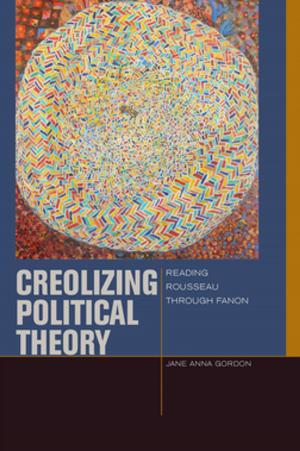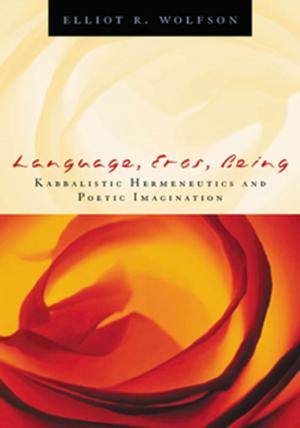The Rebellious No
Variations on a Secular Theology of Language
Nonfiction, Religion & Spirituality, Philosophy, Religious, Theology| Author: | Noëlle Vahanian | ISBN: | 9780823256976 |
| Publisher: | Fordham University Press | Publication: | March 3, 2014 |
| Imprint: | Fordham University Press | Language: | English |
| Author: | Noëlle Vahanian |
| ISBN: | 9780823256976 |
| Publisher: | Fordham University Press |
| Publication: | March 3, 2014 |
| Imprint: | Fordham University Press |
| Language: | English |
This book aims to renew theological thinking by extending and radicalizing an iconoclastic and existentialist mode of thought. It proposes a theology whose point of departure assumes and accepts the critiques of religion launched by Nietzsche, Freud, Marx, and Feuerbach but nevertheless takes theological desire seriously as a rebellious force working within, but against, an anthropomorphic, phallogocentric worldview.
As a theology of language, it does not claim any privileged access to some transcendent divine essence or ground of Being. On the contrary, for Noelle Vahanian theology is a strictly secular discourse, like any other discourse, but aware of its limitations and wary of great promises—its own included. Its faith is that this secular theological desire can be a force against the constitutive indifference of thought, and it is a meditative act of rebellion. Aphoristic instead of argumentative, this book offers an original and constructive engagement with such seminal issues as indifference, belief, madness, and love.
This book aims to renew theological thinking by extending and radicalizing an iconoclastic and existentialist mode of thought. It proposes a theology whose point of departure assumes and accepts the critiques of religion launched by Nietzsche, Freud, Marx, and Feuerbach but nevertheless takes theological desire seriously as a rebellious force working within, but against, an anthropomorphic, phallogocentric worldview.
As a theology of language, it does not claim any privileged access to some transcendent divine essence or ground of Being. On the contrary, for Noelle Vahanian theology is a strictly secular discourse, like any other discourse, but aware of its limitations and wary of great promises—its own included. Its faith is that this secular theological desire can be a force against the constitutive indifference of thought, and it is a meditative act of rebellion. Aphoristic instead of argumentative, this book offers an original and constructive engagement with such seminal issues as indifference, belief, madness, and love.















